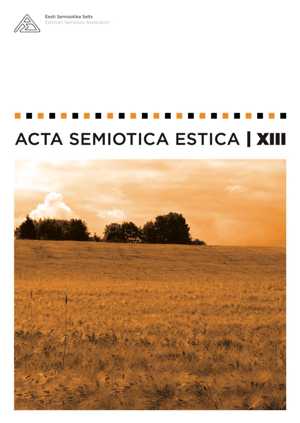Idioodi armastus
The Idiot's Love
Author(s): Andres LuureSubject(s): Semiotics / Semiology, Studies of Literature, Russian Literature
Published by: Eesti Semiootika Selts
Keywords: Love; semiotics; Fyodor Dostoyevsky; hypostatic union;
Summary/Abstract: To analyse love, two ways of loving are distinguished in this essay. By gracious loving, the lover is keen to give love to the beloved who misses it. By loving-in-love, the lover is keen to receive love that she misses from her beloved who has it in abundance. Gracious love is similar to God's love towards the human; loving-in-love is similar to the human's love towards God. The gracious lover doesn't admit to himself that his love is inadequate and that she needs love. The lover-in-love doesn't admit to herself that she wants to love and that the other's love is the way it is. In order for love to be integral, loving-in-love is to be built on the foundation of gracious love, and gracious love is to be built on the ground of loving-in-love. The hypostatic union of Jesus Christ's divine nature and human nature in which His natures undergo no confusion, no change, no division, no separation are interpreted as the foundation of the integrity of the love between God and the human being, which can incompletely be imitated by the love between men. Then it is probable that Jesus Christ realises or perhaps transcends the perfect love as described above; however, it seems that there is no description of it in the gospels. Prince Myshkin in Fyodor Dostoyevsky's novel „The Idiot”, who is often conceived as an embodiment of Jesus Christ, seems to love Nastasya Filippovna with gracious love and Aglaya with love-in-love, being unable to realise the integral love.
Journal: Acta Semiotica Estica
- Issue Year: 2016
- Issue No: 13
- Page Range: 104-118
- Page Count: 15
- Language: Estonian

